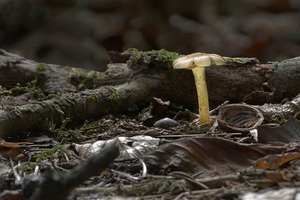- الكلمات - #cannabis gummies #Cannabis gummies. Weed gummies
-
- آخر تحديث ٤ أبريل، ٢٠٢٢ تعليق ٠ , ٢٠٨ views, ٠ مثل
- Canada - احصل على الاتجاهات
More from mungus mungus
More in Politics
Related Blogs
أرشيف
Warning: You're Losing Money by Not Using Cannabis Gummies
الجسم
Depression is one of the most common mental health problems in the world (ADAA, 2016). In all of the many stress disorders present (e.g., ongoing depression, major depressive disorder, premenstrual disorders) there are common symptoms of feelings of sadness, emptiness, or irritability, accompanied by somatic and psychological changes affecting a person’s ability to function.
The endocannabinoid system is known to play a role in regulating mood (NIDA, 2015, p. 9); therefore, the Cannabis edible decided to examine the association between cannabis use and mental disorders or symptoms.
- Can Cannabis or
- Cannabinoids Effective
- Treatment Reduce Depression
Systematic Review
Review by Whiting et al. (2015) was a recent review of good quality. There are no identified RCTs that can diagnose cannabis in patients with depression. Five RCTs (634 participants) enrolled patients in some cases (chronic pain or multiple scasticosis with spasticity) and Cannabis gummies depressive symptoms.
Only one study reported symptoms of depression in the first place; the symptoms were mild. Nabiximols (n = 3; maximum dose from 4-48 doses / day), dronabinol (10 mg and 20 mg daily), and nabilone capsules (maximum dose of 8 mg ) compared with placebo; Nabilone was also compared to dihydrocodeine.
- Results were
- Evaluated from
- 8 hours to 9 weeks
- After randomization
Three of the five trials were classified as high risk of bias and the other two as unexplained risk. Three studies (nabiximols, dronabinol) did not show any effect using validated symptom scales. Another study that examined three doses of nabiximols found increased symptoms of depression at the highest dose (11–14 spray / day), but no difference compared with placebo at low doses. Comparisons of nabilone and Weed gummies show no difference in depressive symptoms.
Basic Texts
The committee did not identify any of the best quality literature reporting medical marijuana as an effective treatment for reducing depressive symptoms and published after a recent well-published systematic review or review of the study. question.
Discussion of Results
Although patients report using cannabinoids for depression, our search for systematic reviews of good quality did not identify any RCTs that examined the effects of medical cannabis on patients with depression.
Studies of patients with chronic pain or multiple sclerosis with primary depressive symptoms did not Thc gummies any effect. There are no experimental data on the effects of cannabinoids on major depressive disorder.
In Chapter 12 (Mental Health), the committee reviews disease evidence to examine the relationship between marijuana use and the development of depressive disorders and the impact of marijuana use on the road or symptoms of the disease.
الصور
خريطة
-
المواقع على MyWorldGo
معلومات الموقع
- موقعك: Canada - احصل على الاتجاهات
- العنوان المنسق: Canada
- بلد: Canada













تعليقات